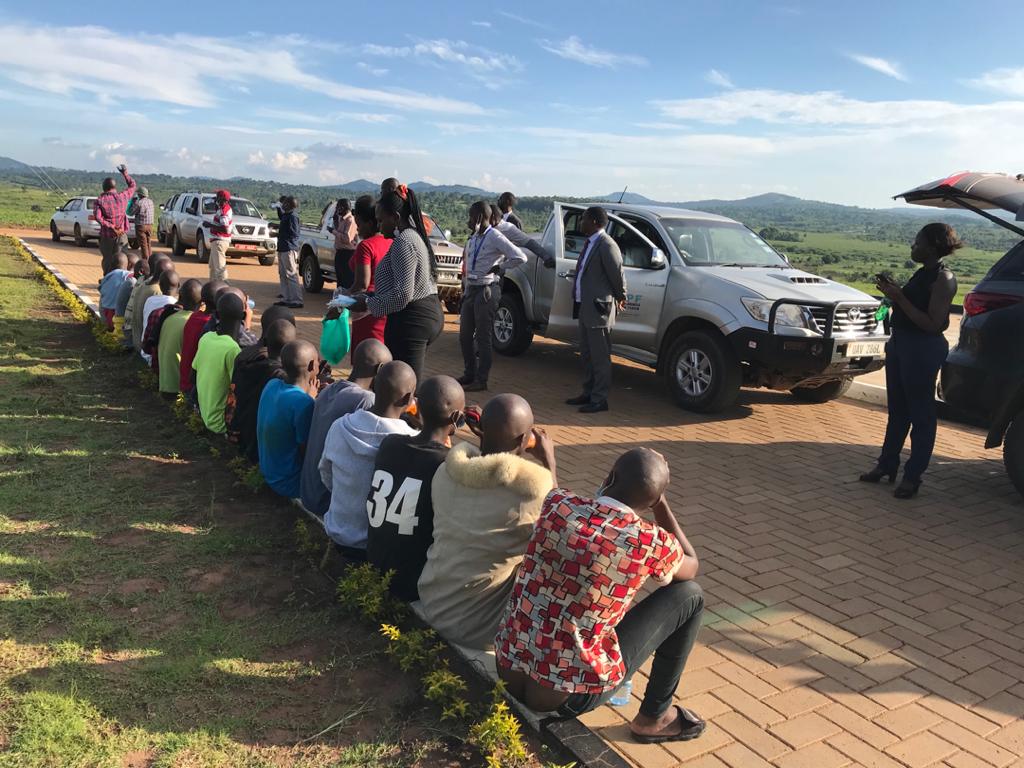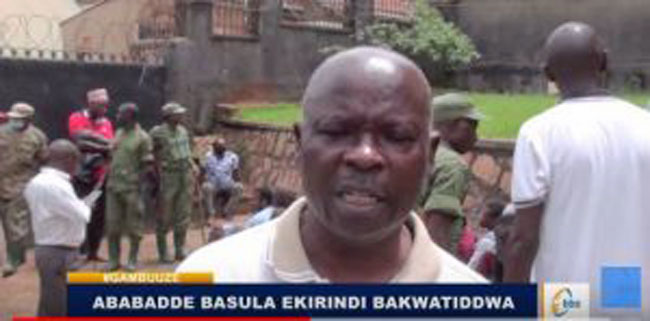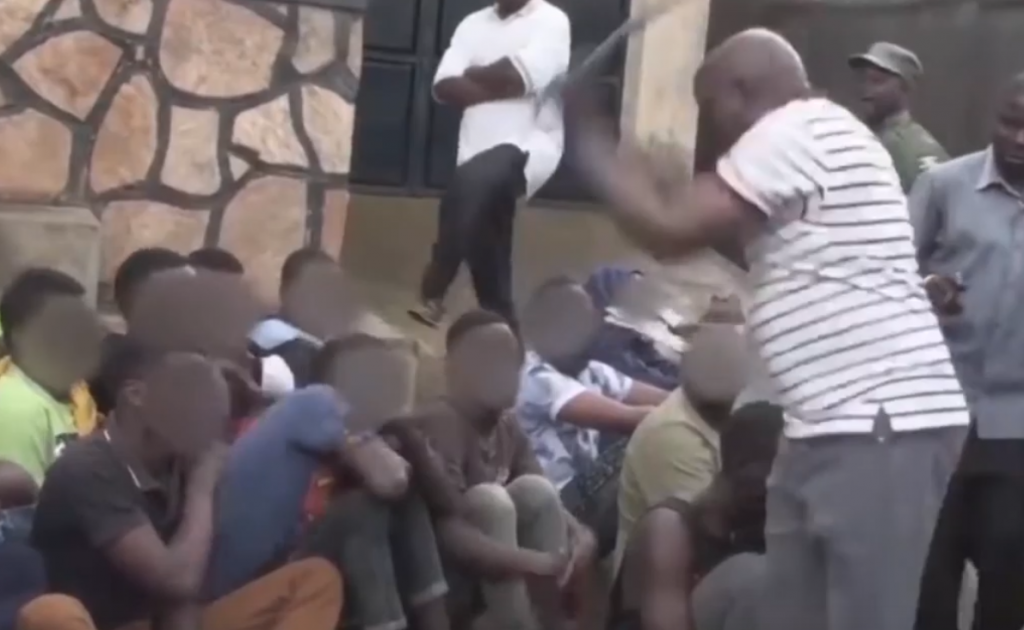Ugandan court awards damages to accused gay men who were tortured
Joto La Jiwe is a Ugandan correspondent for the African…
LGBTQI Ugandans were arrested and tortured during COVID-19 lockdown

The High Court of Uganda ordered Kyengera Town Council and its former mayor to pay damages to 20 youths living in a shelter who were arrested and beaten on suspicion that they were homosexual during the early days of the COVID-19 lockdown in March 2020.
On the morning of March 29, 2020, the very day after the first COVID-19 lockdown was announced by the President Museveni, Kyengera Town Council Chairperson Hajji Abdul Kiyimba led a mixed force of local government officials, police officers and vigilantes who demanded access to a shelter where the 20 individuals were at the time. He claimed that the 20 were homosexuals and sought to arrest them.

The process of arresting the individuals and searching their home lasted approximately three hours. During that time, most individuals were beaten, all of them were verbally abused, and one was taken behind the house by a group of local area leaders, forced to undress and have his genitalia checked for “evidence of homosexuality.” The whole group was forcefully filmed.
Video evidence clearly shows Kiyimba picking up a large stick and beating some of the individuals with it while asking them questions about their sexuality. They were then bound with ropes and marched to a police station in the area, where they were held until March 31, 2020, when they were arraigned before the Chief Magistrates Court of Mpigi at Nsangi and remanded to Kitalya Mini-Max Prison.
There, the group was repeatedly harassed and isolated as homosexuals, and beaten brutally by and on the orders of Principal Officer Philemon Woniala, who in one case burnt one of the suspects with a piece of wood around their genitalia, accusing them of being homosexuals.
The Court was asked to determine whether the actions of Kiyimba, Woniala and Kyengera Town Council violated the right of the 20 individuals to freedom from torture and other cruel, inhuman and degrading treatment or punishment, protected in Article 24 and 44 of the Constitution of Uganda; whether these actions violated the right to privacy as protected in Article 27 of the Constitution; and whether these actions violated the right to equality and freedom from discrimination as protected in Article 21 of the Constitution.
In its ruling, the Court found that there was evidence that the twenty individuals suffered torture and inhuman and degrading treatment meted out by Kiyimba, that Kiyimba’s actions in entering the house without a search warrant constituted a violation of their right to privacy, and that Kyengera Town Council was vicariously liable for the actions of its then-Chairperson.
The court was unable to issue a finding on whether the actions of the respondents amounted to unlawful discrimination. The court specifically noted that it was unable to determine whether sexual orientation and gender identity are protected grounds under Article 21 of the Constitution in light of the recent enactment of the Anti-Homosexuality Act and the appeal pending before the Supreme Court challenging the constitutionality of the Act.
The court cleared Woniala, finding that there was no evidence to prove that he or the prison authorities had done anything that was out of the ordinary way in which prisoners were treated.

The Court ordered Hajji Abdul Kiyimba and Kyengera Town Council jointly pay to each of the 20 individual applicants a sum of 5,000,000 Ugandan shillings (approx. $1400 USD) in compensatory damages and 2,500,000 Ugandan shillings (approx. $700 USD) in exemplary damages, plus interest from the date of the judgement until the damages are paid in full. Hajji Abdul Kiyimba and Kyengera Town Council were also ordered to bear the costs of the application.
“The Community has won” – COSF Uganda
In a joint press statement, Human Rights Awareness and Promotion Forum (HRAPF) and Children of the Sun Foundation Uganda (COSF), which ran the shelter that was raided, welcomed the ruling but expressed concern over the fact that Woniala and the prison authorities were not held accountable:
Whereas HRAPF and COSF welcome the decision of the Court in this matter and applaud the Court for holding Hajji Abdul Kiyimba, a political leader, accountable for actions done by him personally to undermine the rights and liberties of individuals in his jurisdiction while using the authority of his office, we are concerned about the failure of the court to recognise that, at the very core, these actions were prompted by discrimination against the individuals concerned on the basis of their real or presumed sexual orientation or gender identity, which have been found by the UN Human Rights Committee to be protected under sex and ‘other status’ in articles 2(1) and 26 the International Covenant on Civil and Political Rights (ICCPR). We also note that the Court failed to hold PO Philemon Woniala and the state accountable for acts of violence perpetrated by himself and on his orders against the 20 individuals during their stay at Kitalya Mini-Max prison, a fact that was glossed over by the Court in this judgment as normal/institutionalised treatment of prisoners.
According to the Court, ‘Simply because an inmate has been medically examined while in prison, told to be isolated, or openly rebuked does not imply that somehow he or she has been subjected to psychological torture falling under the ambit of anti-torture legislation.’
This greatly trivializes the pain and suffering that the applicants went through since all these actions were based on the real or imputed sexual orientation of the applicants. An anal examination by other prisoners on order of prison authorities is not an authorized medical examination, and the burning of a person’s genitalia should not simply be glossed over in the way the Court did.
The applicants also praised the court’s decision, which they said recognized the indignities meted out by an elected official.
“We welcome this decision. Although the prisons authorities have not been held responsible for their actions, we are happy that justice has in part been served,” said lead applicant, Mukiibi Henry.
‘This judgment affirms the humanity of the applicants, who have for long suffered the effects of the indignity and violence meted out against them. Local leaders and politicians have now been put on notice that if you beat up people based on their sexual orientation and gender identity; you pay from your own pockets as provided for under the Human Rights Enforcement Act. The taxpayer is no longer there to always pay for the misdeeds of individuals,” said Dr. Adrian Jjuuko, Executive Director of HRAPF.
The ruling follows an earlier one by Justice Michael Elubu issued in June 2020 that found that denial of the same 20 youths access to their lawyers was a violation of their rights to a fair hearing and liberty by the state. The Court also awarded damages of 5,000,000 Ugandan shillings (about $1400 USD) to each of the affected persons. The state has yet to pay the damages.




